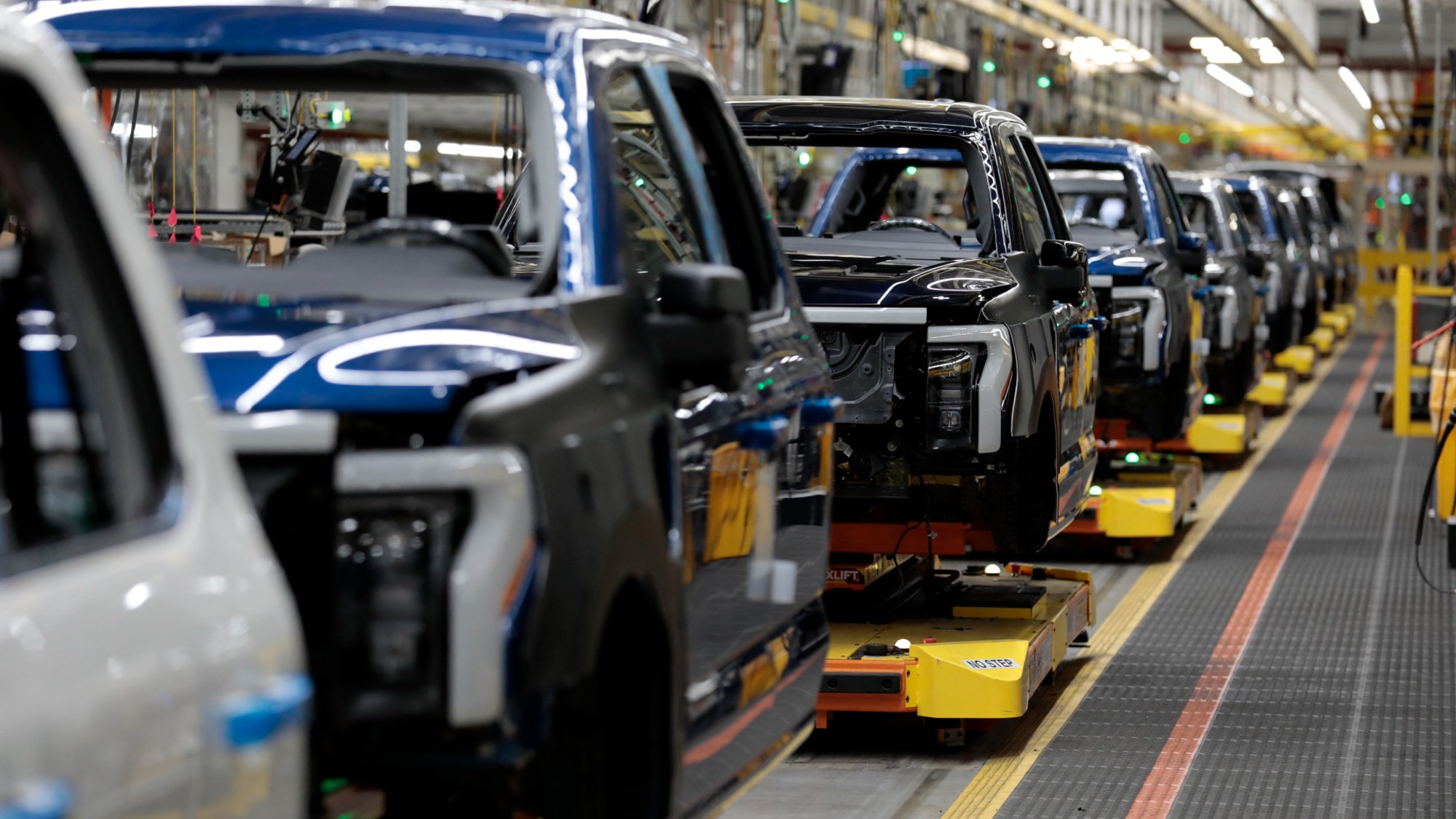How will Ford reinvent EV manufacturing to compete with China?
Henry Ford's assembly line system is being replaced


A free daily email with the biggest news stories of the day – and the best features from TheWeek.com
You are now subscribed
Your newsletter sign-up was successful
Henry Ford did not invent the assembly line, but he certainly jump-started a manufacturing revolution by using it to build his cars. To create a new generation of cheap electric vehicles, Ford — the company, not the man — is throwing out this influential innovation.
"This is not a standard factory upgrade," TechCrunch said of Ford's $2 billion plan to "transform" its plant at Louisville to build a new $30,000 mid-sized electric pickup truck. Instead of a "single conveyor line," the revamped process will use a faster "three-branched assembly tree" that has different lines for the vehicle's front, back and battery system, before being united at the end. The new EV "will be produced 15% faster" than traditional vehicles, the company said.
Ford's "complete rethinking" of its longstanding processes is needed to "overcome China's low-cost labor," Axios said. "We tore up the moving assembly line concept and designed a better one," said Ford CEO Jim Farley. The "dramatically faster and cheaper" process will require 20% fewer parts than the company's traditional products, Axios said. But it will also require fewer workers. Six hundred employees of the Louisville plant are being offered buyouts.
The Week
Escape your echo chamber. Get the facts behind the news, plus analysis from multiple perspectives.

Sign up for The Week's Free Newsletters
From our morning news briefing to a weekly Good News Newsletter, get the best of The Week delivered directly to your inbox.
From our morning news briefing to a weekly Good News Newsletter, get the best of The Week delivered directly to your inbox.
What did the commentators say?
"The timing couldn't have been worse" for Ford's decision to double down on EVs, said Andrew J. Hawkins at The Verge. Federal tax credits on EVs expire in September, and President Donald Trump's trade war is "tilting the balance in favor of China's EVs." Ford already loses $5 billion a year on electric vehicles, and Farley has spoken openly about China's "humbling" lead in the sector. That makes Ford's new effort to build a profitable EV the "biggest challenge of Farley's career," one that could decide whether the company thrives or ends up "just a footnote" in the EV industry.
Ford's announcement is a "proverbial moonshot and then some," said Liam Denning at Bloomberg. Until now, the company has focused on producing "electrified versions of existing models." While the "spirit of Tesla Inc. haunted" Ford's rollout of its plans, Farley will not be able to count on the "indulgence" that Musk has routinely received for touting new products and then "delivering half-measures years late." He has to deliver, or else. "Farley is risking a lot for both his company and himself."
What next?
Farley did sound a note of caution in announcing the new EV truck, said The New York Times. There are so many new things being attempted in the manufacturing process that "I can't tell you with 100% certainty that it will all go just right," he said. The challenge is steep: Chinese companies like BYD produce EVs at a "fraction of European and American costs," said the Times. But other observers believe Ford has a chance at success. The progress in lowering costs and production time puts the company "within spitting distance of the Chinese," said auto consultant Sandy Munro.
A free daily email with the biggest news stories of the day – and the best features from TheWeek.com
Joel Mathis is a writer with 30 years of newspaper and online journalism experience. His work also regularly appears in National Geographic and The Kansas City Star. His awards include best online commentary at the Online News Association and (twice) at the City and Regional Magazine Association.
